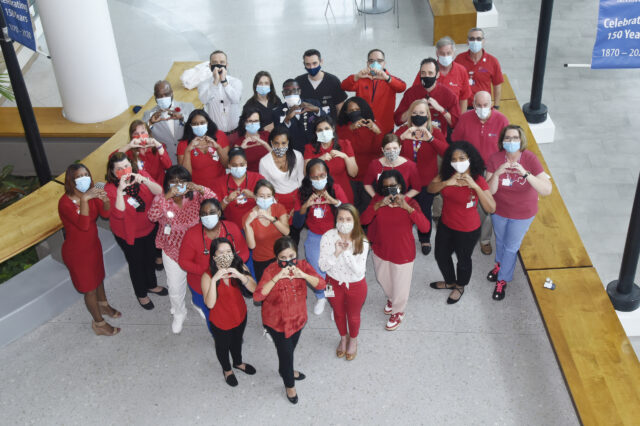Heart Disease in Women – An Unfortunate Foe
There are several heart conditions that can affect women. It’s helpful to understand these, along with the occurrences and risks leading up to them.

Update your location to show providers, locations, and services closest to you.

Contact our valve appointment coordinator at Donna.Bautochka@jax.ufl.edu to request a structural heart consultation with one of our experts.

Specialists at the UF Health Cardiovascular Center in Jacksonville lead the region in care for structural heart conditions with advanced diagnosis and treatment options found only at a renowned academic medical center. The Center is also a valuable option for second opinions concerning diagnosis and treatment options.
Structural heart disease refers to a number of conditions affecting the heart structures including the heart valves, heart chambers and muscle, among others. These conditions that may be congenital in nature or abnormalities caused by other acquired diseases or simple wear and tear that may come as a person ages.
Structural heart disease can include a number of conditions:
Many of these conditions have negative effects on a person's quality of life, and some, when left untreated, can cause heart failure, stroke and may lead to death.





There are several heart conditions that can affect women. It’s helpful to understand these, along with the occurrences and risks leading up to them.
